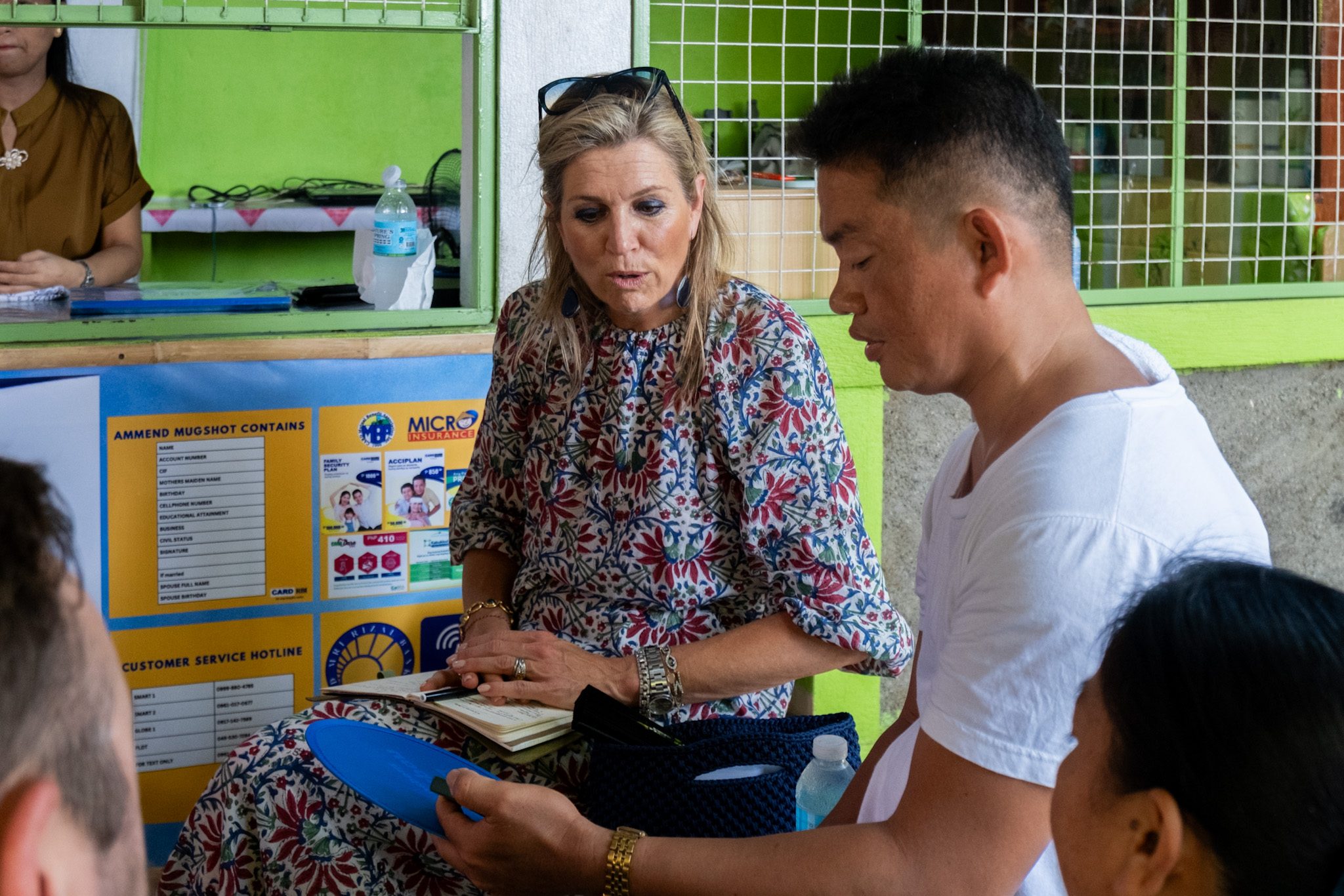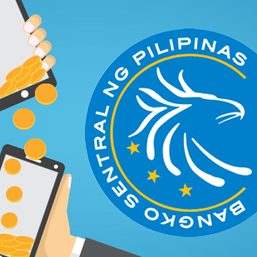SUMMARY
This is AI generated summarization, which may have errors. For context, always refer to the full article.

Queen Máxima of the Netherlands returned to the Philippines to advocate for financial inclusion, and she believes part of that is making digital payments “more affordable for people.”
Máxima, visiting as the United Nations Secretary-General’s Special Advocate for Inclusive Finance for Development (UNSGSA), spent her first day in the country meeting with fisherfolk in Laguna de Bay before proceeding to a discussion with top GCash and Globe executives.
And it seems that the Queen has come to the conclusion that the cost of digital payments is too high.

While visiting Talim Island, the largest island in Laguna de Bay, Máxima spoke with fisherman Leonel Alviso. In their discussion, the Queen tried to establish what “ecosystem” of payments and financial services the community uses.
Alviso explained that he uses a card from CARD MRI Rizal Bank, a rural bank that has a strong presence in the island, to withdraw cash. But there are also times that he uses GCash for digital payments.
“Do you find GCash expensive?” Máxima asked.
Alviso agreed, adding, “Mas maganda sana walang kaltas (It’d be better if there was no fee).”

Later on, Máxima would tell reporters that digital payments remain expensive in the country, although she did not name any e-wallet or financial service in particular.
“It is still kind of expensive to do some of the work. We have to look at the payments. That’s why people keep on using cash. So we have to look at the affordability of those payments and all the services that are actually being given,” Máxima said after the field visit.
GCash is the most used e-wallet service in the Philippines. About 94 million Filipinos, or 8 in every 10, have downloaded or tried using the Ayala-affiliated service.
Getting money into a GCash wallet, however, has its costs. GCash began adding a P5-convenience fee for every cash-in transaction for linked BPI and UnionBank accounts in October 2023. Those loading their GCash wallet through the BPI app also have to pay a P10 fee starting March 1, 2024.

Perhaps this was why the Queen’s trip also included a stop at the GCash headquarters, where she met with GCash president and chief executive officer Martha Sazon, Globe CEO Ernest Cu, and Ayala Corporation director Fernando Zobel de Ayala.
Exactly what was discussed, however, remains behind closed doors as the media was ushered out of the room a few minutes after the meeting began.
But according to a press release by GCash, the Dutch royal “commended GCash for its pivotal role in promoting financial inclusion in the Philippines.”
“The special advocate said many Filipinos now have access to financial services, which was helped in part by GCash,” the e-wallet company said.

Rappler requested for a transcript of the meeting, but the UN advised that they would not share the dialogue of meetings.
Nevertheless, the UN special advocate repeated the same point a few days later in a press conference at the Bangko Sentral ng Pilipinas (BSP).
“[W]e’re also going to make payments also more affordable for people. I’m not saying that everything should be given for free, because that’s not realistic. We have to have a sustainable service that’s actually in place, but there’s a lot of room to improve the pricing of the payment system,” the Queen told local and international press.
A difficult battle to lessen fees
BSP Governor Eli Remolona Jr., who was also with Queen Máxima, likewise told reporters that they were looking for ways to make digital payments cheaper.
“Our discussion revolved around the payment system – how to digitalize it, [make it] more convenient, so that it serves the masses of Filipinos in the country,” Remolona told reporters on Thursday, May 23.
Remolona said that the BSP is using payment systems like GCash as “a gateway to financial inclusion,” which leads to more Filipinos opening bank accounts.
“Pricing is a very important issue,” Remolona said. “It’s not so simple. We have to know the cost structure and we have to have connectivity. And pricing is not just setting a threshold. It matters what threshold you set.”
The head of the central bank said that for him, the “higher the threshold for no fees, the better.” But he admitted that the BSP would still need to do a thorough analysis of what the “right” threshold should be.
Efforts to reduce fees for payments have been long in the making for the BSP. The previous BSP governor, Felipe Medalla, said back in March 2023 that he wanted to remove fees on “small transactions” so that “the poor can also use digital payments.”
“We, the Bangko Sentral and our partners in the banking system, will be able to work together to find a cost-sharing system that excludes small payments from fees, provided it’s below a certain number of transactions, say three a day,” Medalla said.
Remolona, his successor, also previously said he hoped to “shame” major banks into waiving fees for small transactions.
“In general, when it comes to payments, we want to make sure that the poor don’t subsidize the rich,” Remolona said in September 2023.
Later in December 2023, the BSP also maintained its cap on InstaPay and PESONet fund transfer fees. The central bank has kept in place a ceiling for fund transfer fees since December 28, 2021, and has so far not given a definite date on when the moratorium on fees will be lifted.
“The moratorium on InstaPay and PESONet fees shall be lifted, subject to BSP review, when zero fees for small e-payment transactions have been implemented by the payments industry,” the central bank said.
Will the BSP and other financial inclusion advocates be able to pressure big banks and e-wallets to make digital payments more affordable? – Rappler.com
Add a comment
How does this make you feel?




There are no comments yet. Add your comment to start the conversation.